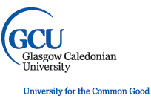Equal access? Learning & leisure for unaccompanied asylum-seeking children in Scotland
Published: 24 October 2023
Dr Diana Camps, Dr Daria Morozova and Dr Kieran have come together as part of the British Academy Early Career Researcher Network (BA-ECRN) seed grant scheme to examine unaccompanied asylum-seeking children’s access to education and leisure in Scotland.
Equal access? Learning & leisure for unaccompanied asylum-seeking children in Scotland
By Dr Diana Camps, Dr Daria Morozova and Dr Kieran Taylor
In January 2023 – shortly after launching its Scottish hub – The British Academy Early Career Researcher Network (BA-ECRN) announced a grant scheme for its members. The proposed scheme encouraged collaborations across disciplines and Scottish universities, and aimed to support short-term projects that could help develop profiles and networks of early career researchers. It is through this Seed Grant scheme that three scholars – Diana Camps, Daria Morozova and Kieran Taylor – came together to examine unaccompanied asylum-seeking children’s access to education and leisure in Scotland.
The team organised a series of workshops with core stakeholders working with unaccompanied asylum-seeking minors – including, but not limited to, teachers, guardians, social workers and volunteers – who came together to discuss major challenges around the integration of unaccompanied children though schooling and hobbies like sports and creative activities. Unaccompanied children are a vulnerable group who have frequently survived trafficking and abuse and often face precarity, racism and exclusion in their host countries. With education and leisure being crucial factors for social integration, maintaining mental health and guaranteeing a more secure future, it is vital to better understand the barriers that prevent unaccompanied minors from accessing education and various leisure activities.
The research team is interdisciplinary, and each team member has their own valuable area of responsibility in the project. Dr Diana Camps is a Research Fellow in the Justice, Insecurity and Fair Decision-Making Interdisciplinary Research Theme (IRT) at the University of Glasgow. She focusses on the role of language and discourse in the (re)production of injustice, and her motivation to join the project was to examine the legal frameworks for unaccompanied children to better understand the mechanisms and policies that contribute to marginalisation.
Dr Daria Morozova is a Lecturer in Fashion and Marketing at Glasgow Caledonian University with a background in cultural studies. In this project, Daria is interested in the gendered aspects related to education and leisure, given that the majority of arriving unaccompanied minors are boys. A better understanding of issues related to gender roles and norms is crucial. Dr Kieran Taylor is a Lecturer in Education at Queen Margaret University in Edinburgh. Drawing on his teaching experience with people seeking asylum and children who experience a range of learning barriers, Kieran is interested in the personal experiences of young people seeking asylum in Scotland.
As this was a short-term project (4 months) it was not possible to interview young people themselves. Nevertheless, researchers were keen to ensure the input of those who have worked with unaccompanied asylum-seeking children. The team approached a variety of practitioners who offered valuable first-hand knowledge related to unaccompanied children's needs and challenges, helping us to identify gaps to address in further research.
Three workshops were arranged where the invited stakeholders were brought together to express their opinions on existing migration policy/ framework and their work with unaccompanied asylum-seeking minors more generally. It is noteworthy that the participants appreciated the format and valued being engaged in face-to-face events. For some, who had communicated via email, these workshops brough them together face-to-face for the first time. Therefore, they saw it as an opportunity to mingle, share experiences and gain advice and resources from each other.
Based on the discussions, Diana, Daria and Kieran identified several emergent themes, which include an urban versus rural divide in Scotland that impacts service provision; the gendered character of some leisure activities; mental health issues and depression amongst unaccompanied children and insufficient attention to those unaccompanied minors who may have learning barriers.
Importantly, an overarching theme that surfaced during the workshops was around the notion of agency, or rather the capacity for young people to make their own decisions regarding their educational path and free time. The lack of space for making independent choices, often underpinned by perpetuated press images of innocent dependent children, is a major topic in existing scholarships on asylum-seeking children.
During the workshops, the stakeholders particularly emphasised how a state of ‘limbo’ while waiting for refugee status hampers unaccompanied children’s sense of security and causes frustration and reluctance to organise their daily lives. Stakeholders expressed particular concern over some asylum-seeking children’s loss of interest in education because its value remains unclear amidst risks of being denied refugee status. It shows how the feeling of being ‘stuck’ in immigration procedures to secure their status can result in a decreased ability to make the transition from childhood to adulthood.
Our next step will refine our research aims and questions and involve young people in co-creating further research, drawing on their lived experience and vision for change. The team is currently preparing a new funding bid to progress their work. In this sense, the seed funding secured from BA-ECRN has been the perfect fit for conducting a scoping exercise. Namely, the four-month timeline was suitable for getting feedback on our research idea, identifying core aspects to explore further and starting a draft bid. In our future study, the views and experiences of unaccompanied asylum-seeking children will be central in constructing the research and the desired outputs, to maximise impact and relevance for those who stand most to gain from this research undertaking: the unaccompanied young people who are starting a new life in Scotland.
The full briefing paper can be accessed here.




First published: 24 October 2023

